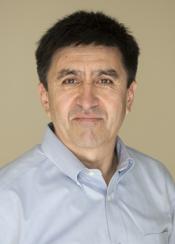San Diego Scientists Help Develop New Twist On In Vitro Fertilization
By David Wagner,
KPBS
| 11. 10. 2016
A team of researchers including scientists from San Diego have developed a new approach to in vitro fertilization that combines components from the eggs of two different women. They say if follow-up studies prove successful, it could one day improve treatments for infertility or help prevent devastating diseases.
But some experts are concerned that this and similar approaches, which have already reportedly been used in a number of human births, have not yet been proven safe.
The new technique involves extracting tiny cells called polar bodies from the egg of a woman who may be struggling with infertility or may be at risk of passing down mitochondrial disease to her children. Polar bodies normally play no role in fertilization, but they can when they're implanted into a healthier egg from a donor.
In a new study published Thursday in Cell Stem Cell, researchers co-led by the Salk Institute's Joseph Ecker show that when this hybrid egg is fertilized, it can give rise to cells that appear capable of becoming viable human embryos. These embryos could contain DNA from...
Related Articles
By Pete Shanks
| 02.27.2026
Last month, we published “The Shameful Legacy of Tuskegee” which focused on a proposed experiment in Guinea-Bissau. The study’s plan echoed the notorious Tuskegee disaster, withholding safe, effective vaccines against hepatitis B from some newborns while inoculating others. It was to be financed by the U.S. but performed by a controversial Danish team. That project provoked a multi-national outcry, leading to a remarkable response from the World Health Organization:
WHO has significant concerns regarding the study’s scientific...
By Jenn White, NPR | 02.26.2026
By Kiana Jackson and Shannon Stubblefield, New Disabled South | 02.09.2026
"MC0_8230" via Wikimedia Commons licensed under CC by 2.0
This report documents a deliberate assault on disabled people in the United States. Not an accident. Not a series of bureaucratic missteps. An assault that has been coordinated across agencies...
By Scott Solomon, The MIT Press Reader | 02.12.2026
Chris Mason is a man in a hurry.
“Sometimes walking from the subway to the lab takes too long, so I’ll start running,” he told me over breakfast at a bistro near his home in Brooklyn on a crisp...




